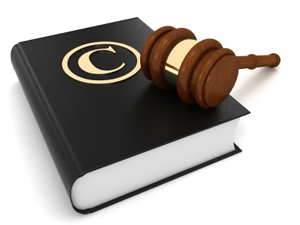
Copyright cases only reach the Supreme Court of Canada once every few years, ensuring that each case is carefully parsed and analyzed. Last week, the court issued rulings on five copyright cases in a single day, an unprecedented tally that will keep copyright experts busy for many months to come.
While the initial coverage unsurprisingly focused on the specific outcomes for the litigants, including wins for Apple (no fees for song previews on services such as iTunes), the entertainment software industry (no additional payment for music included in downloaded video games), and the education community (copying materials for instructional purposes may qualify as fair dealing), the bigger story are three broad principles that lie at the heart of the court's decisions.
Three big shifts
First, the cases provide an unequivocal affirmation that copyright exceptions such as fair dealing should be treated as users' rights. The court first raised the notion of balancing creator rights and user rights in 2004. Publisher and creator groups had urged the court during the Dec. 2011 hearings to backtrack on its user rights approach claiming it was merely a metaphor, yet the court used these cases to re-emphasize its importance. The user rights analysis affects virtually all copyright cases, forcing all courts to ensure that there is a fair balance between the interests of creators and users.
Second, the court endorsed a technology neutral approach to copyright law. For example, in striking down the demand for payment for music included in downloaded video games, it noted that there is "no practical difference between buying a durable copy of the work in a store, receiving a copy in the mail, or downloading an identical copy using the Internet."
Instead, it likened the Internet to a "technological taxi" and warned that additional payments for a downloaded copy violated the principle of technological neutrality. It stated that "principle of technological neutrality requires that, absent evidence of Parliamentary intent to the contrary, we interpret the Copyright Act in a way that avoids imposing an additional layer of protections and fees based solely on the method of delivery of the work to the end user."
The court has effectively embedded a technology-neutral principle into the law that will extend far beyond these particular cases, as future litigants will undoubtedly argue that existing exceptions can be applied to new uses of copyright works to ensure technological neutrality.
Third, the court continued its expansion of fair dealing by interpreting it in a broad and liberal manner. In the song previews case, where Apple argued that 30 second song previews could be treated as consumer research and thus qualify for fair dealing, the court agreed, concluding that "limiting research to creative purposes would also run counter to the ordinary meaning of 'research,' which can include many activities that do not demand the establishment of new facts or conclusions. It can be piecemeal, informal, exploratory, or confirmatory. It can in fact be undertaken for no purpose except personal interest."
Perk up, educators
Similarly in the education case, the court adopted an expansive view of private study (another fair dealing category) by ruling that it could include teacher instruction and that it "should not be understood as requiring users to view copyrighted works in splendid isolation."
Both decisions point to a very broad approach to fair dealing that can be used by a wide range of businesses and education groups to make the case that innovative uses of copyright materials qualifies as fair dealing and therefore does not require prior permission or compensation. In the months ahead, online providers may offer samples using the same fair dealing analysis, the education community is likely to rethink its approach to copyright licensing, and businesses may argue that their copying is done on behalf of their clients.
When combined with the government's recently enacted Bill C-11 that adds new consumer exceptions and limits damages, Canadian copyright law has undergone an extensive overhaul over the past few weeks with implications that will take years to sort through. ![]()
Read more: Science + Tech















Tyee Commenting Guidelines
Comments that violate guidelines risk being deleted, and violations may result in a temporary or permanent user ban. Maintain the spirit of good conversation to stay in the discussion.
*Please note The Tyee is not a forum for spreading misinformation about COVID-19, denying its existence or minimizing its risk to public health.
Do:
Do not: